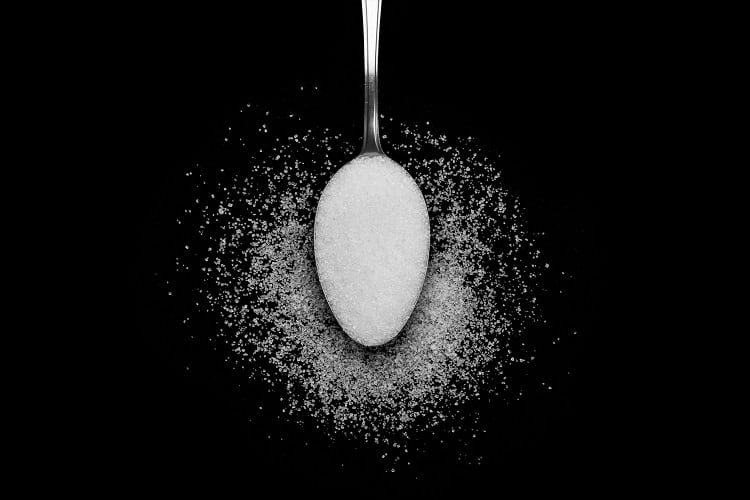Sugar, according to the UK’s National Health Service (NHS), is linked to an increase in cardiovascular risk factors.
One of the most prominent sources of sugar is sugar-sweetened drinks, of which, according to charity Action on Sugar, 79% contain six or more teaspoons per 330ml can, which is the entirety of the World Health Organisation’s daily recommended amount for sugar. Furthermore, sugary drinks have in the past been linked to increased cancer risk and even increased risk of death.
Sugar tax
The UK’s sugary drinks levy, also known as the sugar tax, has seen significant success, with one study pointing to a fall in hospital admissions due to tooth decay by 5,500 and another suggesting that the tax led to a reduction of 6,500 calories per year for each UK resident.
The levy, which was introduced in 2018, is imposed on soft drinks manufacturers for drinks which contain more than 5g of sugar per litre (18p per litre for drinks with 5g of sugar per 100ml, and 24p per litre for drinks with 8g per 100ml and above).
According to a new study, exercise does not prevent sugar-sweetened drinks leading to increased cardiovascular risk, even when only consumed a couple of times a week.
The study followed a cohort of 100,000 adults across 30 years and found that those consuming sugar-sweetened beverages (which it defined as soft or carbonated drinks, lemonade, and fruit cocktails) twice a week had a higher risk of cardiovascular problems even if they did 150 minutes of exercise a week (which is recommended by both the NHS and the WHO). Sugary drinks were assessed every four years, and exercise biannually.
While physical activity does reduce the cardiovascular risk associated with sugar-sweetened beverages by half, it does not eliminate it altogether.
Within the 3,001,213 of person-years accounted for in the study, a total of 13,269 cardiovascular events were recorded.
Global killer
Cardiovascular disease is the leading cause of mortality worldwide.
The study was undertaken as a response to the fact that many advertisements for sugar-sweetened drinks show people doing physical exercise while drinking them, implicitly suggesting (according to the researchers) that such exercise negated the negative effects of the drinks. This, as the study clearly shows, is not the case.
“The marketing strategies for these drinks often show active people drinking these beverages. It suggests that sugary drink consumption has no negative effects on health if you’re physically active. Our research aimed to assess this hypothesis,” said Jean-Philippe Drouin-Chartier, one of the study’s authors.
Consumption in Europe
According to the European Commission, the EU member state where most people consume sugar-sweetened drinks once a day is Belgium (20%), followed by Malta (12%). The lowest was Estonia (2%), followed by Lithuania (3%).
However, artificially-sweetened drinks were not found to increase cardiovascular risk as significantly. Replacing the sugar, it turns out, removes a significant amount of the risk. It does not remove it completely, though, and there were slight rises in cardiovascular risk found by the researchers in those who consumed artificially sweetened drinks.
“Replacing sugar-sweetened beverages by diet drinks is good, because it reduces the amount of sugar. But the best drink option remains water,” said Drouin-Chartier.
“Our findings provide further support for public health recommendations and policies to limit people’s intake of sugar-sweetened beverages, as well as to encourage people to meet and maintain adequate physical activity levels,” added Lorena Pacheco, lead author of the study.
Sourced From: The American Journal of Clinical Nutrition
'Sugar-sweetened or artificially-sweetened beverage consumption, physical activity, and risk of cardiovascular disease in adults: a prospective cohort study'
Published on: 6 January 2024
Doi: https://doi.org/10.1016/j.ajcnut.2024.01.001
Authors: L. S Pacheco, D. K Tobias, Y. Li, S. N Bhupathiraju, W. C .Willett, D. S Ludwig, C. B Ebbeling, D. E Haslam, J. Drouin-Chartier, F. B. Hu, M. Guasch-Ferré





